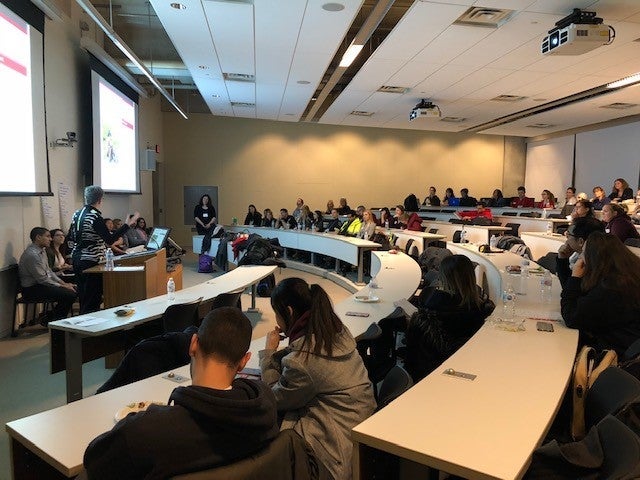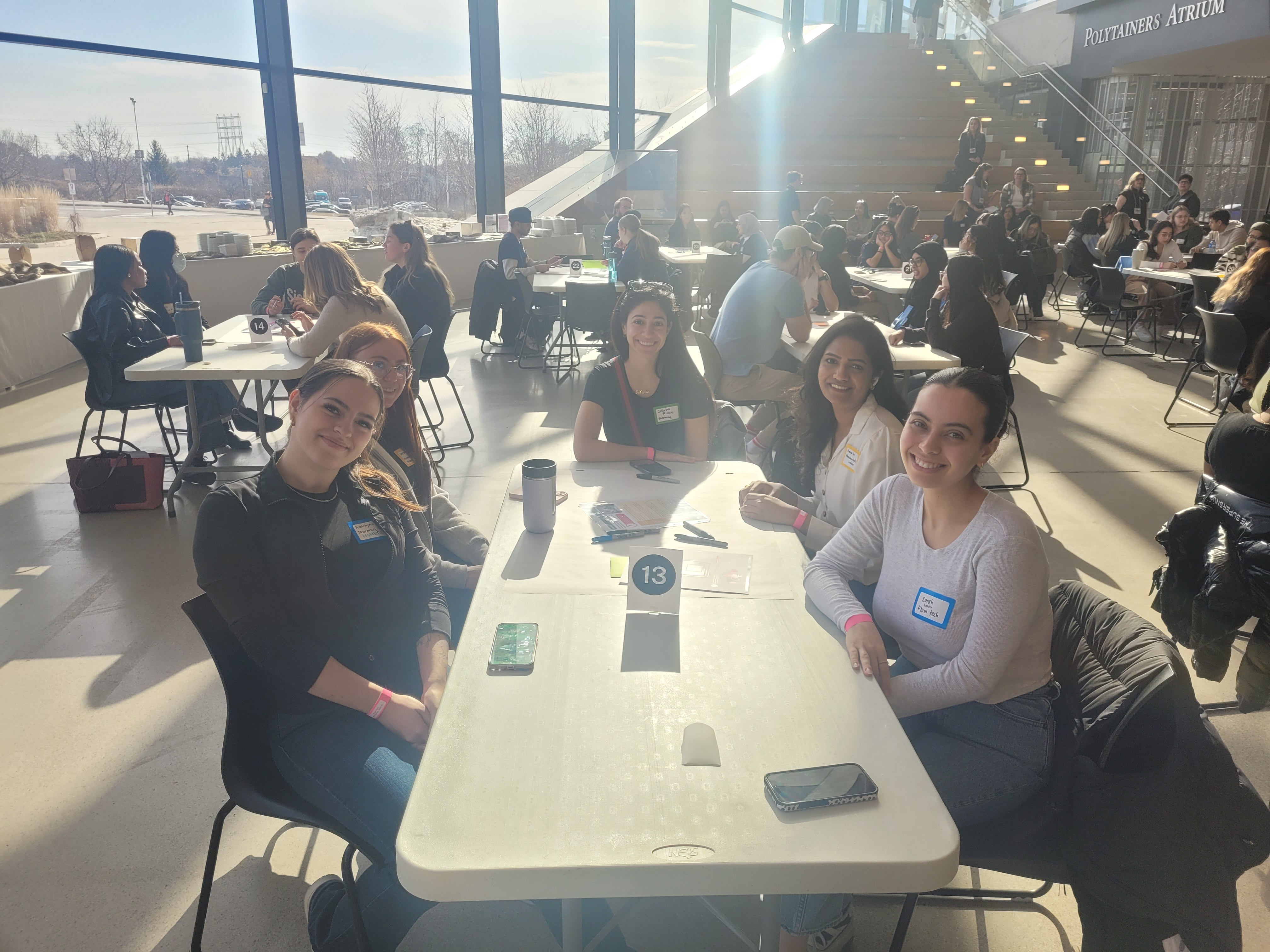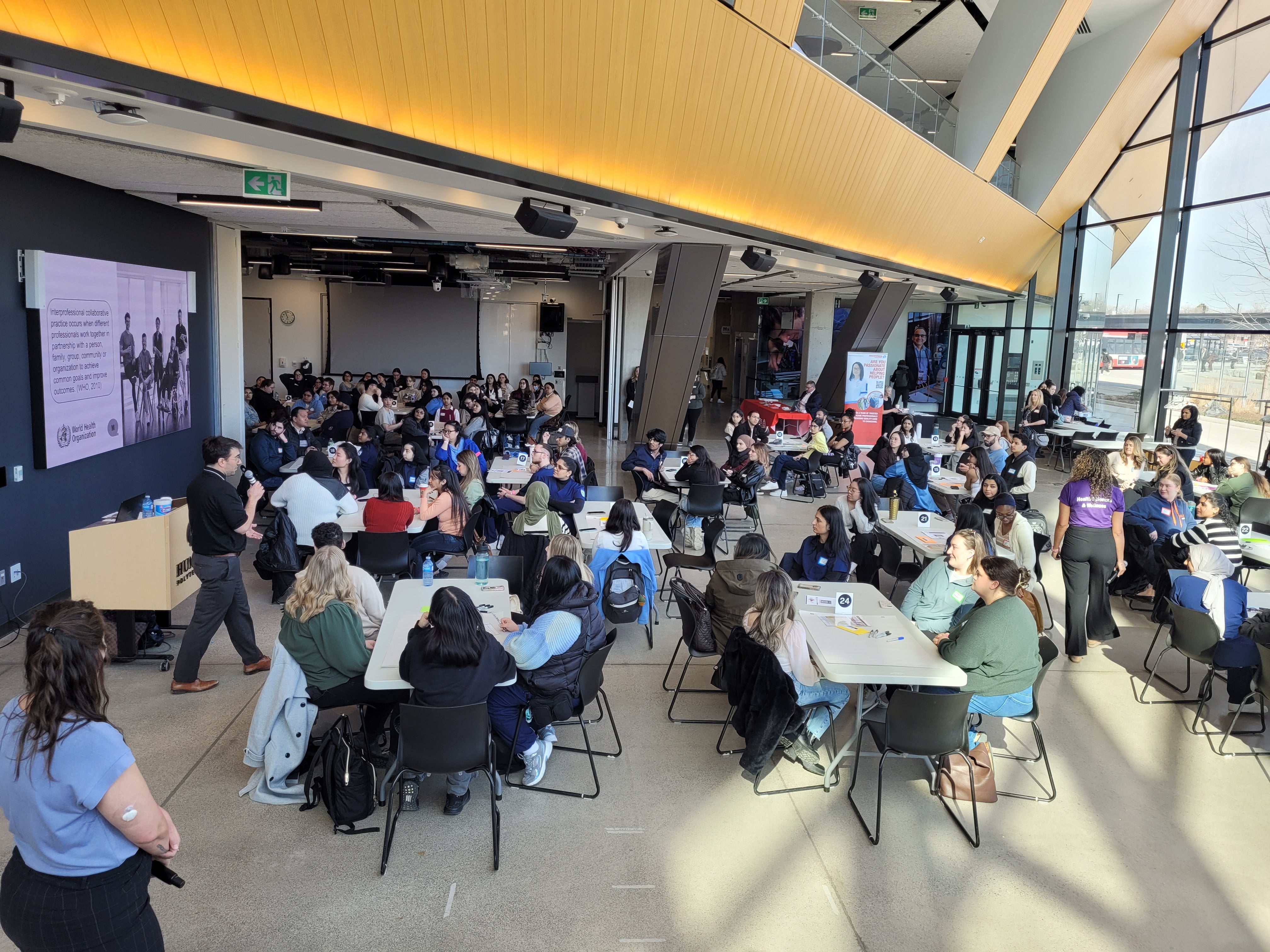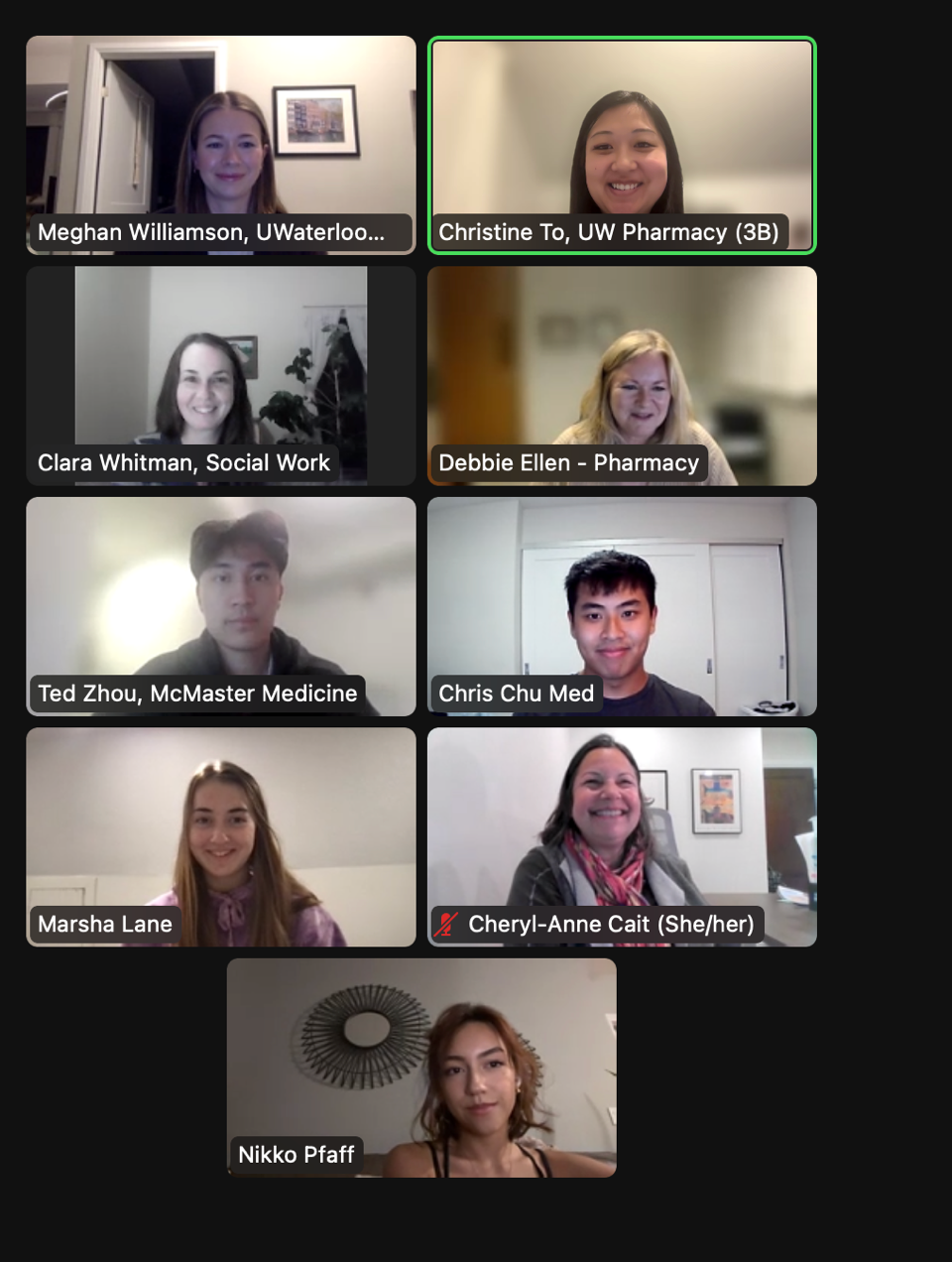What is Intra-Interprofessional Education at Waterloo Pharmacy?
The IPE program at the University of Waterloo is committed to preparing students to be collaborative members of the healthcare team. We introduce IPE to our students in their first year, followed by a mandatory IPE seminar course in their second year. As students continue through the program, we work on providing them with ample opportunities to develop and enrich their understanding of IPE and the Canadian Interprofessional Health Collaborative (CIHC) competencies.
Interprofessional collaboration exists inside the classroom through developed curriculum and partnerships, however we know that it is “in the trenches” where IPC really flourishes. Through our unique co-op model and 4th year clinical rotations, students can practice/witness their IPE learnings outside of the classroom and get involved in interprofessional collaboration in action.
We also encourage self-directed learning and interprofessional team-based learning to create opportunities for networking and the chance to explore different topics and practice settings. Pharmacy IPE leverages the University of Waterloo and School of Pharmacy’s core strength in innovative experiential programming to deliver diverse IPE experiences. Our hope is by working with other institutions and community partners, we can prepare our students for interprofessional collaboration, resulting in improved patient outcomes.”
Interprofessional education occurs when students from two or more professions learn about, from, and with each other to enable effective collaboration and improve health outcomes. Once students understand how to work interprofessionally, they are ready to enter the workplace as a member of the collaborative practice team. This is a key step in moving health systems from fragmentation to a position of strength.
Are you a current student?
What is the difference between Interprofessional and Intraprofessional collaboration?
Waterloo Pharmacy IPE Program Stages
IPE at the School of Pharmacy is broken down into 3 stages and embedded in both curricular and experiential learnings throughout the students degree.
Stage 1: Interprofessional Education Foundational Content (Exposure)

Exposure
- Didactic teaching
- Core IPE concepts and competencies.
Stage 2: Intra-Interprofessional Simulated Learning Experiences (Immersion)

Immersion
- In-person and online interactions with students and faculty from other programs.
- Workshops, seminars, role clarification exercises, facilitated small-group case discussions, and role-plays with standardized patients.
Stage 3: Intra-Interprofessional Clinical Practice Experiences (Application)

Application
- Authentic IP learning opportunities in a variety of practice settings – Co-op work terms and 4th year clinical rotations.
- Apply core concepts in clinical practice, gain confidence and refine collaborative competencies.
Student experiences
Sydney Eng
Shiv Patel
Zoya Choukeir
Supreet Kapoor
Kelsey Mar
What are the Canadian Interprofessional Healthcare Competencies (CIHC)?
There are six competency domains that highlight the knowledge, skills, attitudes, and values that shape the judgments essential for interprofessional collaborative practice.
- Relationship-Focused Care/Services
- Team Communication
- Role Clarification & Negotiation
- Team Functioning
- Team Differences/Disagreements Processing
- Collaborative Leadership
Each of the competencies are equally valuable and continue to develop over an individual’s professional lifespan. These competencies can be implemented within any relevant practice/learning situation and integrated into every new experience. ~CIHC National Competency Framework

IPE at a glance
What can you expect from our events?
Our most recent event, Intraprofessional Exploration: Pharmacy & Pharmacy Technician Programs Event, gathered 367 students, from over 10 different schools in Ontario at Humber Polytechnic. Pharmacists and Pharmacy Technicians collaborated closely in professional practice in interactive workshops. Learners from both professions engaged with one another to foster role clarity and enhance team dynamics, preparing them for effective interprofessional collaboration in their future practice.




















